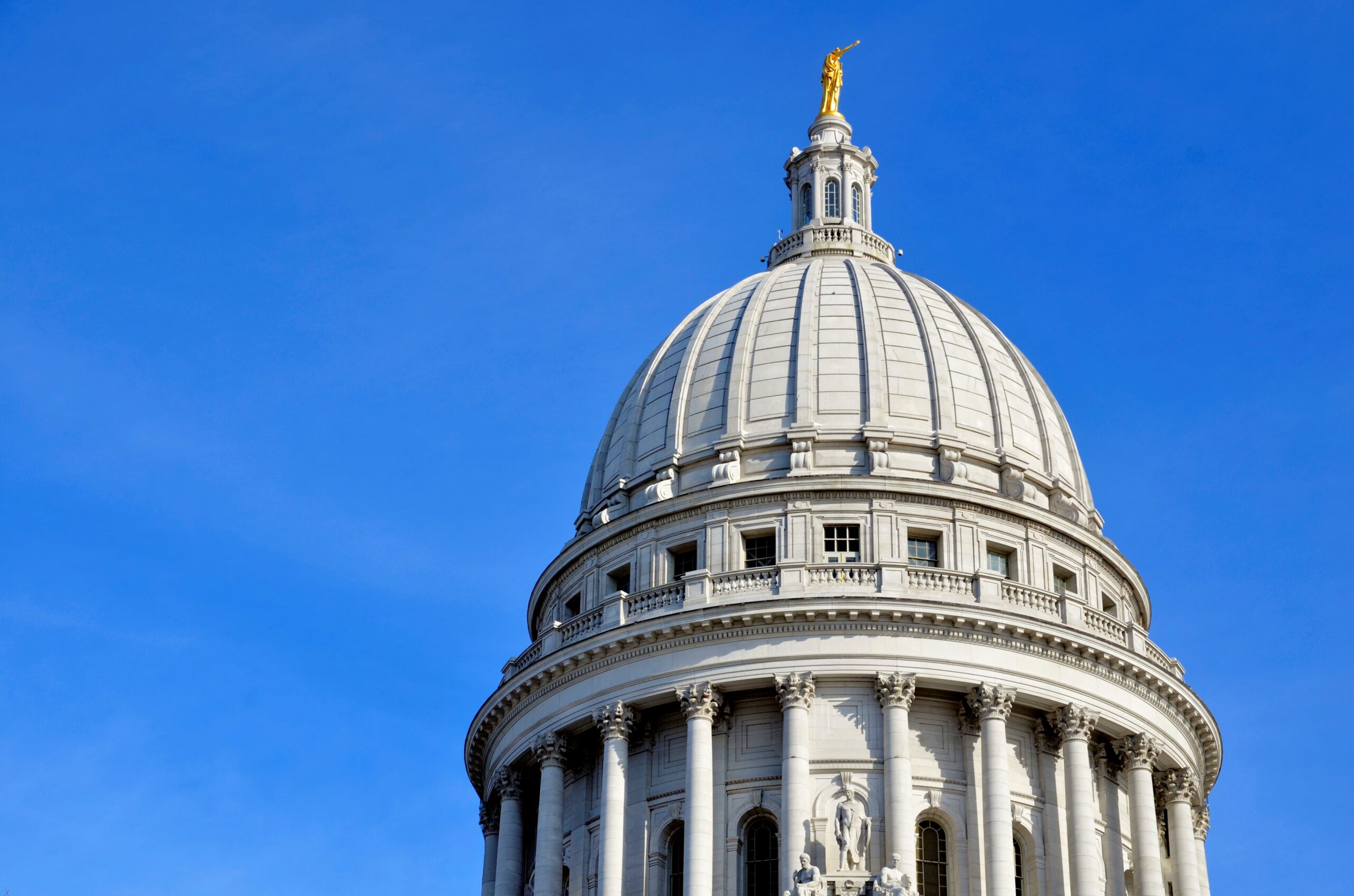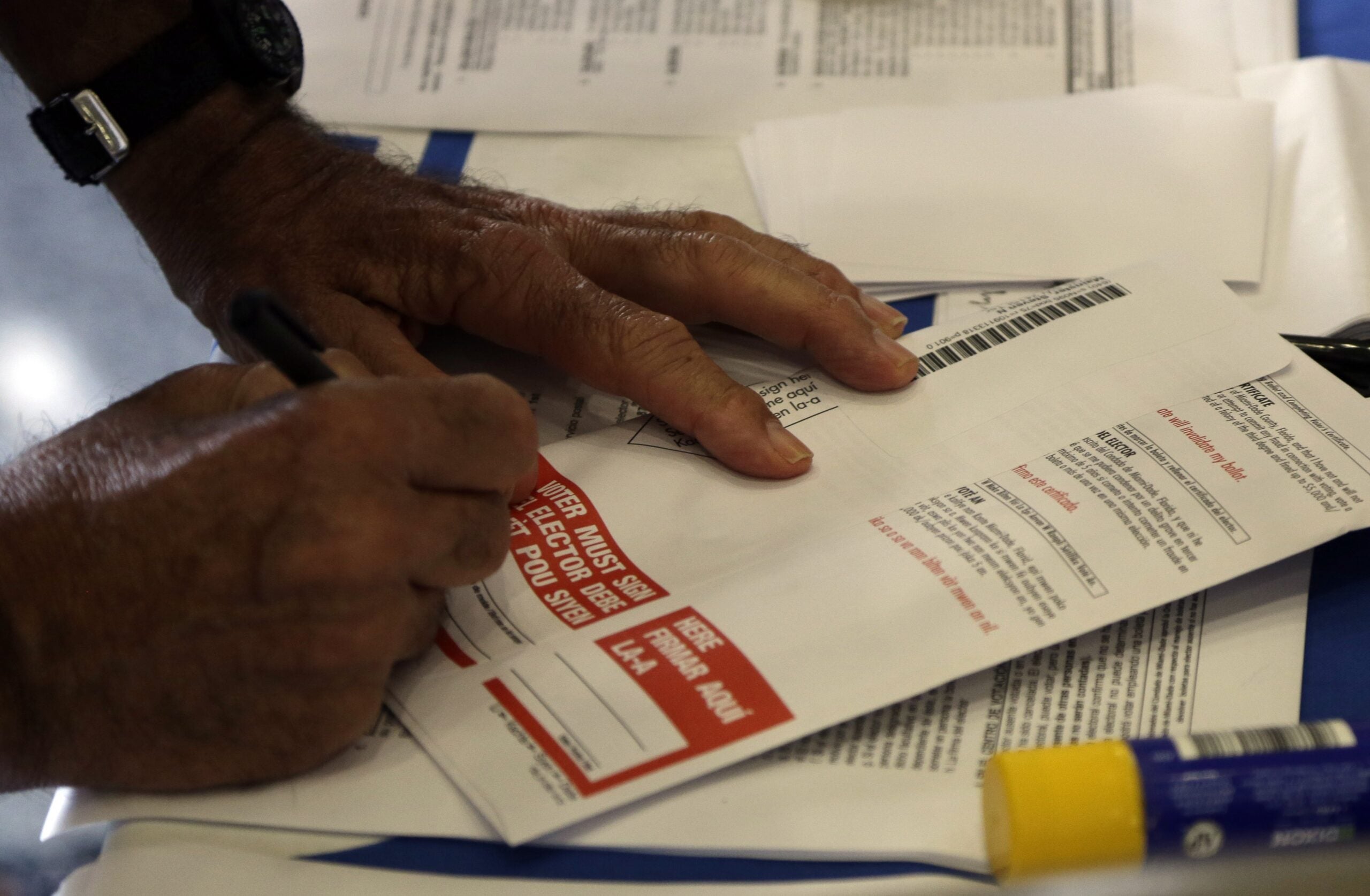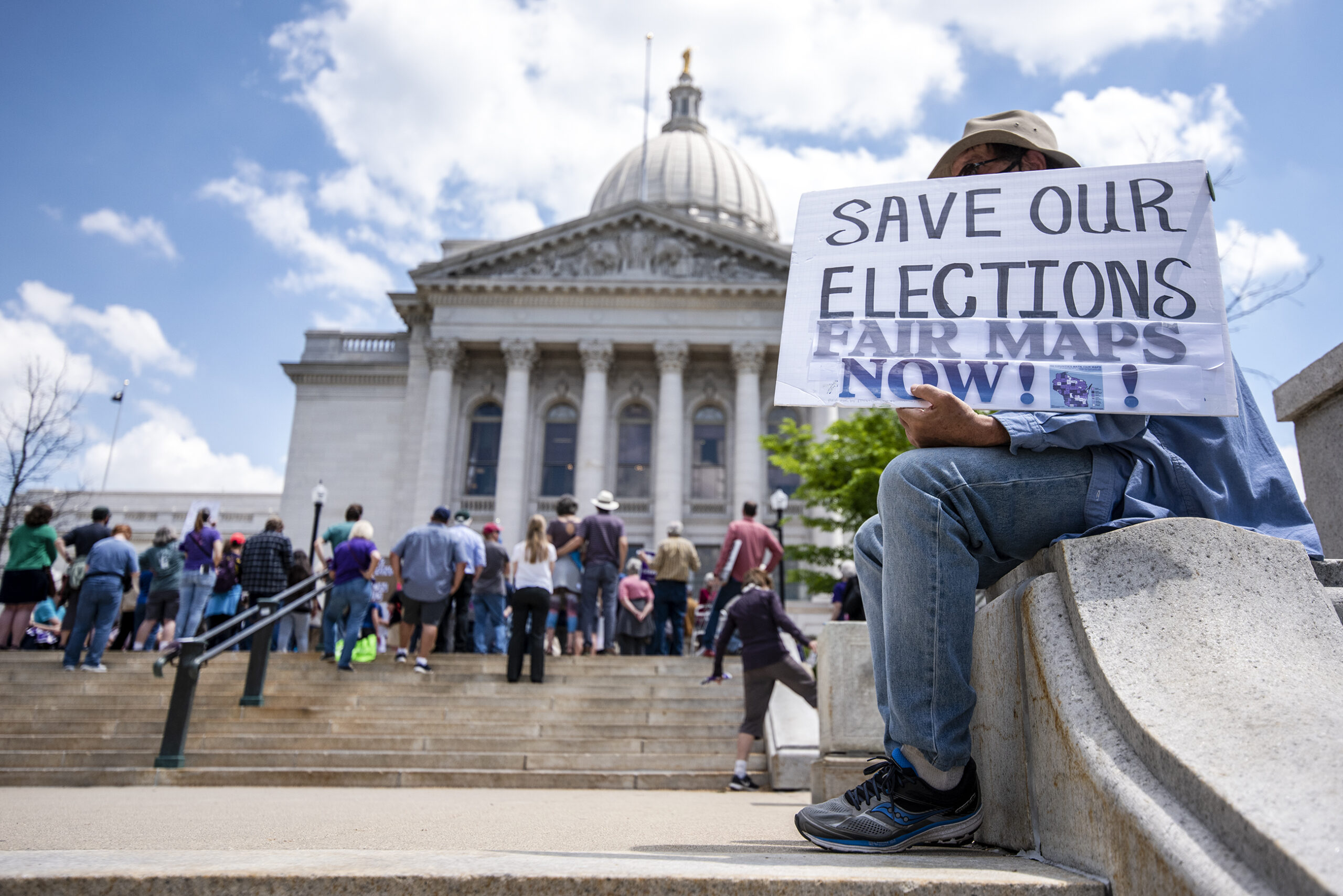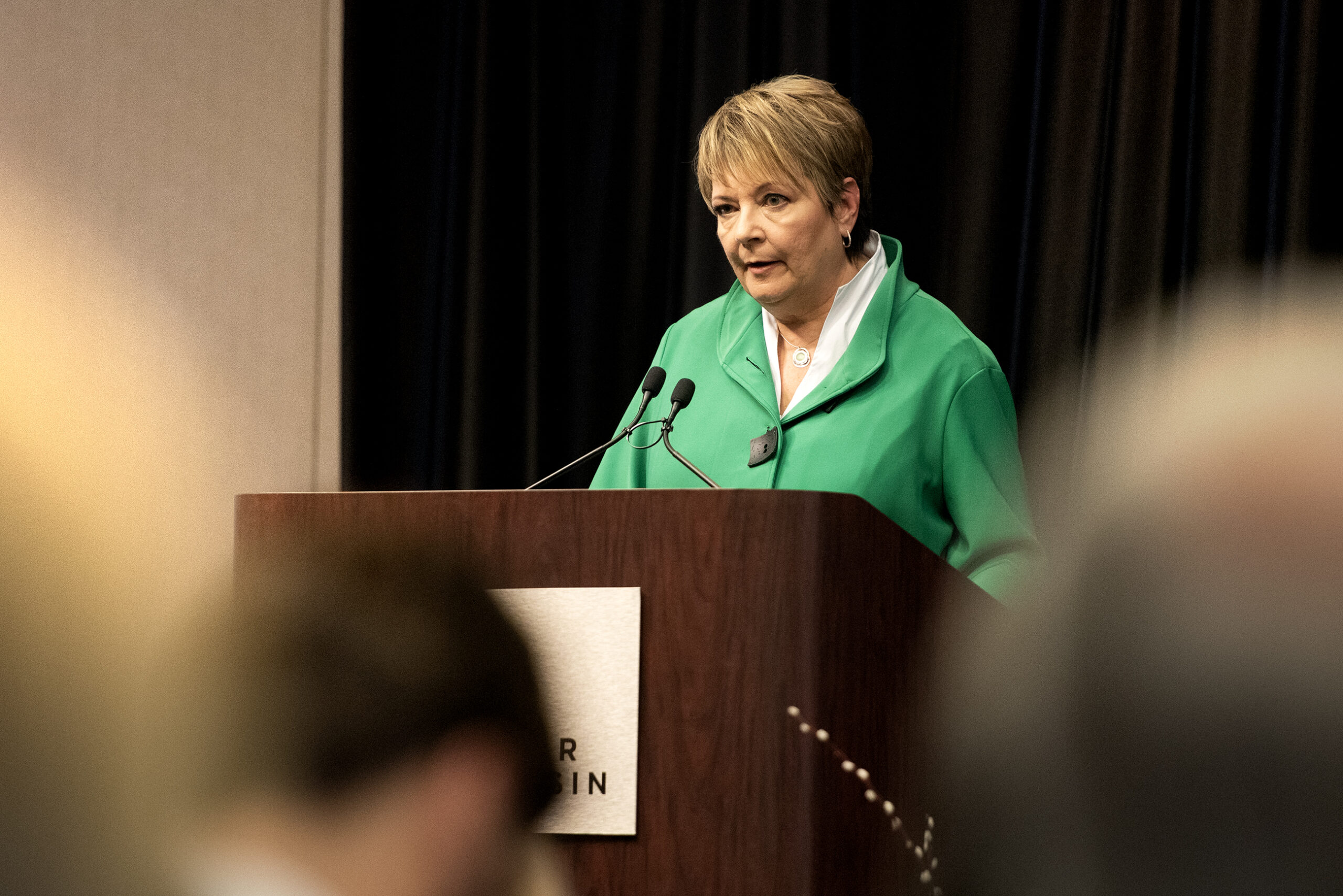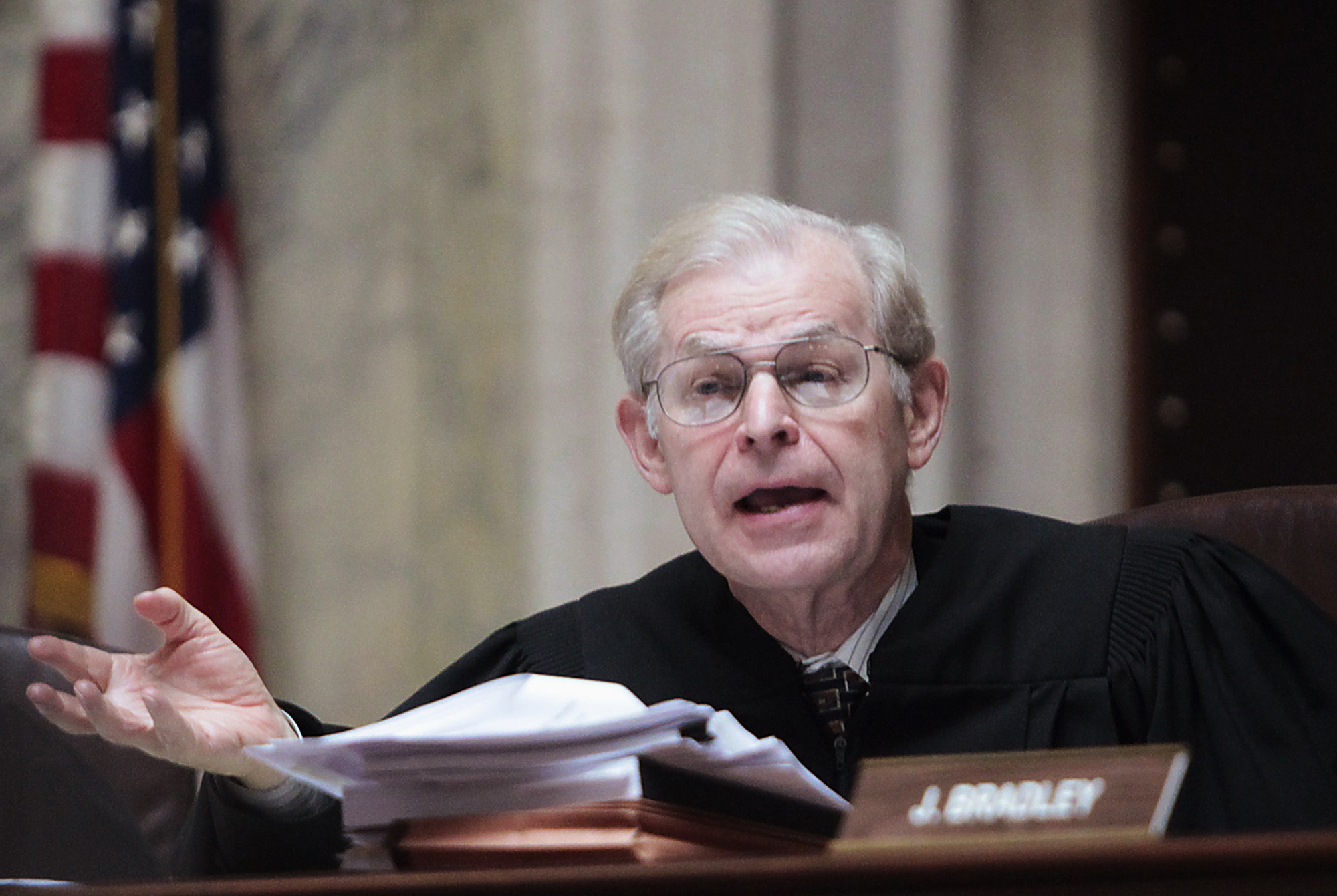Republican legislators and business groups made a coordinated push Thursday for a plan that would reopen the state more quickly, with one restaurant owner telling lawmakers he’s ordering alcohol and food in case he can start serving customers next week.
Their calls came as the state Supreme Court weighed a GOP lawsuit to overturn the “Safer at Home” order issued by Gov. Tony Evers’ administration that’s set to expire on May 26.
They also came on a day when Wisconsin saw a jump in the number — and percentage — of positive COVID-19 cases.
Stay informed on the latest news
Sign up for WPR’s email newsletter.
Thursday’s push came at an informational hearing called by Assembly Republicans to talk about the “Back to Business” plan developed by Wisconsin Manufacturers & Commerce (WMC), the state’s largest business group.
The WMC plan would require businesses to operate with more or fewer restrictions depending on the number of cases and the population density of their counties while also accounting for the type of work they do.
The plan does require a decline in positive tests for COVID-19 or an increase in testing, which are key provisions of Evers’ “Badger Bounce Back” plan to reopen Wisconsin.
No lawmakers — Republican or Democrat — have introduced the WMC plan as a bill, but already, some trade groups are using it to guide their plans for reopening, something that could happen sooner than later if the Supreme Court rules against Evers.
Kristine Hillmer, the President and CEO of the Wisconsin Restaurant Association, said her group was already distributing a voluntary plan to restaurants that requires staff to pass health checks before their shifts, requires tables and chairs to be sanitized after each use and requires indoor seating to comply with “appropriate” social distancing guidelines.
The plan also suggested that restaurants could allow certain employees to wear gloves and masks, although it would not be mandated.
“Whether the ‘Back to Business’ plan goes or not or we go in another direction, all that work can be used in a slow-to-reopen process,” Hillmer told lawmakers. “I think it’s safe to say that it’s going to be a slow reopen. So for restaurants in particular, I think you’re going to see a 50 percent capacity or less.”
Bob Prosser, owner of the Ishnala Supper Club in Lake Delton, told lawmakers over video testimony that it would take him seven to 10 days to get up and running again should the state reopen. He said he was preparing for that possibility already.
“I told my manager yesterday, ‘Order booze tomorrow,’ Prosser said. “Order booze in the anticipation that we can open.’”
Prosser said he also told his chef to order groceries that are non-perishable. He said he would put in an order for beef soon even though it would not immediately arrive.
“I’ll open with whatever I have,” Prosser said.
Wisconsin Tavern League President Chris Marsicano, who owns The Village Supper Club in Delevan, told lawmakers his members were willing to adapt in order to reopen, even at a reduced capacity.
“If the mandate comes down that we have to wear masks and gloves, that’s fine,” Marsicano said. “If we have to get rid of all our paper menus and all the condiments on the table … that’s fine. We will do whatever it takes, but we have to get back to work.”
Tavern League lobbyist Scott Stenger said the state could ease the financial strain on taverns by letting them serve alcohol and food at outdoor tables.
“If we had that change, and we could do that next week, that would get us to the end of the month,” Stenger said. “But I want to be clear. Without a change — a change in the near future — all these small taverns that are such a unique part of this state’s history are going to vanish. They aren’t going to be in business.”
Democrats on the committee said they wanted to see restaurants and bars reopen, but they worried it was too soon since there has yet to be a decline in COVID-19 cases in Wisconsin. On Thursday, the state identified 334 new cases of COVID-19, or 10.8 percent of all people tested.
A study of diners at a restaurant in China found that one diner who was not yet feeling symptoms of the coronavirus appeared to have spread the disease to nine other people.
Rep. Christine Sinicki, D-Milwaukee, said that while cases were uneven across the state, people would travel to places that opened sooner, and so would the virus.
“You better believe people from Milwaukee are going to leave Milwaukee to go up north and go to a restaurant in Brookfield — whatever. You can’t contain it in one city,” Sinicki said.
Sinicki also asked businesses groups what would happen to workers who don’t feel safe returning to businesses that reopen.
“They may lose their unemployment insurance,” said the Restaurant Association’s Hillmer. “That may very well happen, but that’s not just restaurants. That’s every single sector.”
GOP Lawsuit Now In Court’s Hands
Also Thursday, Republican lawmakers filed final briefs in their lawsuit to overturn “Safer at Home,” meaning it’s now up to the state Supreme Court to decide whether to take the case and whether to overturn the state’s order.
Lawmakers filed the lawsuit last week, telling justices that state Department of Health Services Secretary Andrea Palm exceeded her power when she issued an extension to the stay-at-home order.
Republicans asked the court to overturn the order but give lawmakers and the governor six days to come up with an alternative through the Legislature’s administrative rule-making process.
Palm’s attorneys at the state Department of Justice asked the court to dismiss the case, writing that her powers were well established in state law and that waiting on the administrative rulemaking process could take weeks to play out when responding to a pandemic requires immediate action.
In a response brief filed Thursday, Republicans said that ran contrary to the state constitution’s separation of powers.
“The Secretary of the Department of Health Services (DHS) claims that she may wield unbounded powers to control the free movement of Wisconsinites and to close their stores, factories, parks, and churches in perpetuity,” Republicans told justices. “This would of course make the Secretary considerably more powerful than even the Governor.”
It’s now up to the court to decide what to do with the case, and while justices can act quickly when they want to, they’ve yet to set a timeline.
Should Republicans prevail in the case, they’d have to craft a compromise with Evers, something that has often eluded the two sides on other issues.
If they can’t agree on a new stay-at-home order, that task would fall to county governments, potentially leading to different restrictions — or no restrictions at all — in each of Wisconsin’s 72 counties.
Public health advocates, like Dr. James Conway at the University of Wisconsin-Madison’s Global Health Institute, have asked the court to leave Evers’ order in place.
“I mean this is an incredibly contagious disease,” Conway told reporters on Wednesday. “We would pretty rapidly, we calculated, within certainly a week to two weeks of the lifting of ‘Safer at Home,’ start to see hot spots emerging in unpredictable areas.”
Wisconsin Public Radio, © Copyright 2024, Board of Regents of the University of Wisconsin System and Wisconsin Educational Communications Board.

